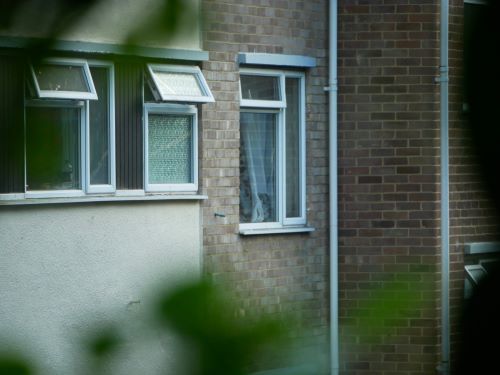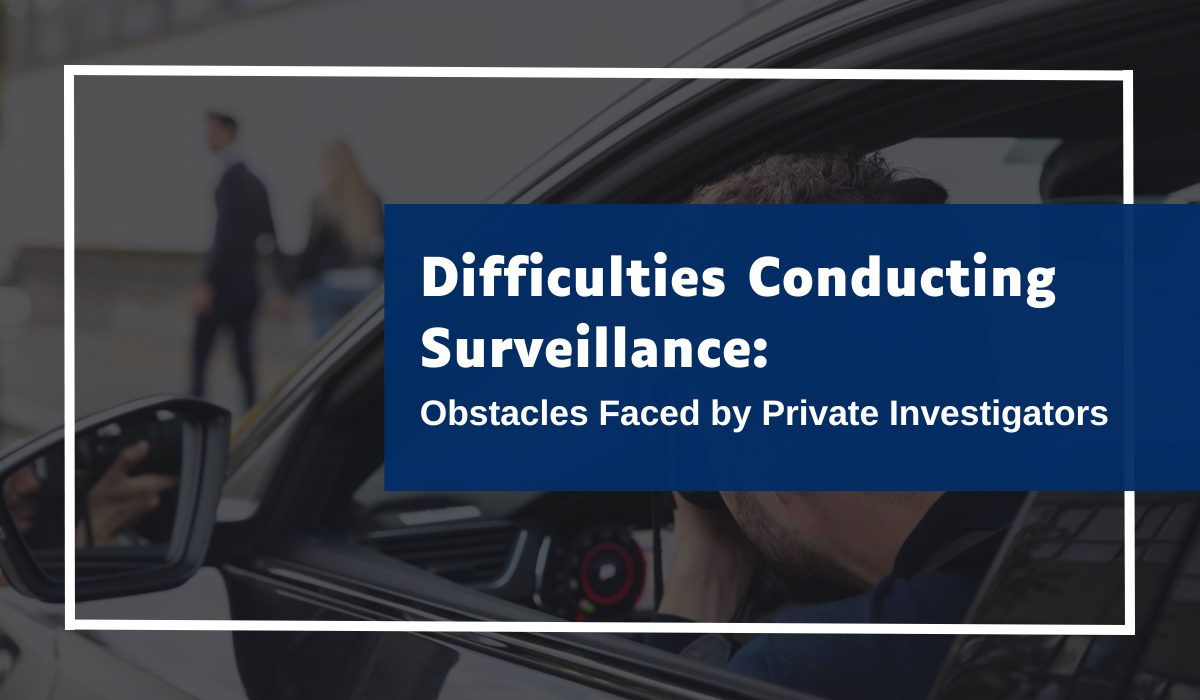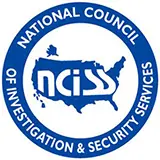Surveillance is a critical task for private investigators, enabling them to gather vital information and evidence, in a format that is almost undisputable. However, conducting surveillance can be challenging due to various obstacles. Let’s explore the difficulties faced by private investigators when conducting surveillance operations.

Counter-Surveillance Techniques:
Private investigators encounter difficulties conducting surveillance due to the increasing use of counter-surveillance techniques. Subjects who are aware of being monitored may employ measures to detect and evade surveillance, hindering the investigator’s progress.
Physical Obstacles:
Private investigators face physical obstacles that impede successful surveillance. But factors like crowded urban environments, adverse weather conditions, and limited visibility can make it difficult to maintain visual contact with subjects. This ultimately can affect the quality of evidence gathered.
Legal Restrictions:
Complying with legal boundaries presents a challenge for private investigators during surveillance operations. Varying privacy and surveillance laws across jurisdictions require investigators to operate within legal confines, obtaining consent and respecting privacy rights. Failure to do so can have serious legal consequences.
Technological Advancements:
Technological advancements pose difficulties for private investigators conducting surveillance. While tools like drones, GPS trackers, and hidden cameras enhance surveillance capabilities, they also make it easier for subjects to detect and counter surveillance efforts, compromising the effectiveness of the operation.
Subject Awareness:
Subjects who are aware of being surveilled can alter their behavior and employ evasive tactics, making it challenging for private investigators to gather accurate and reliable information. This heightened awareness significantly impacts the success of surveillance operations.
Neighborhood Factors:
Neighborhood factors, such as nosy neighbors and multiple occupants in a residence, present challenges during surveillance. Vigilant neighbors may become suspicious, impeding the investigator’s ability to blend in discreetly. Residences with multiple occupants complicate surveillance efforts, requiring investigators to discern the subject’s activities within a crowded environment.

Traffic and Parking Difficulties:
Private investigators encounter difficulties conducting surveillance due to heavy traffic and limited parking options. Maneuvering through congested areas increases the risk of losing sight of the subject or attracting unwanted attention, compromising the effectiveness of the operation.
Time and Resource Constraints:
Limited time and resources can hinder surveillance operations. Allocating sufficient manpower, equipment, and financial resources is crucial for effective surveillance. However, constraints in budget, personnel availability, and client-imposed time limitations can limit the investigator’s ability to conduct comprehensive surveillance.
Private investigators face numerous difficulties conducting surveillance, including counter-surveillance techniques, physical obstacles, legal restrictions, technological advancements, subject awareness, neighborhood factors, traffic, parking difficulties, and time/resource constraints. Understanding and addressing these challenges are essential for private investigators to conduct successful surveillance operations and gather valuable information and evidence.










